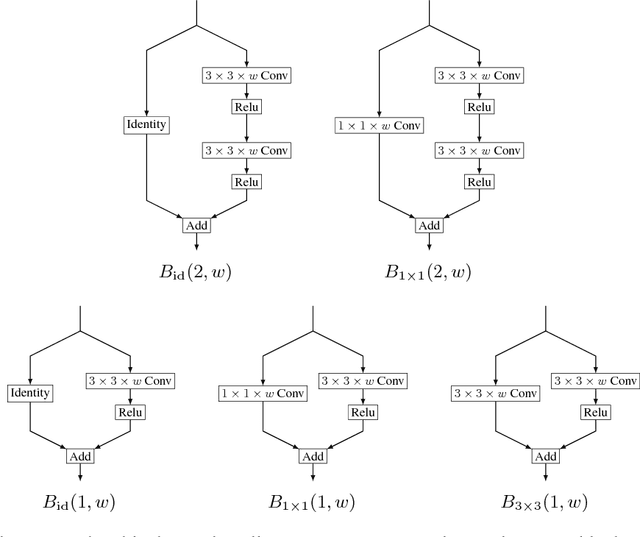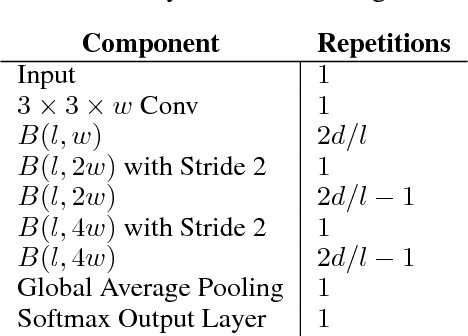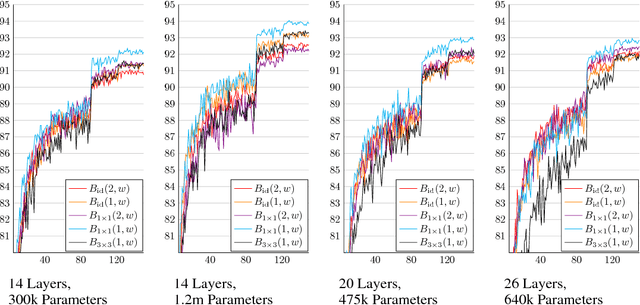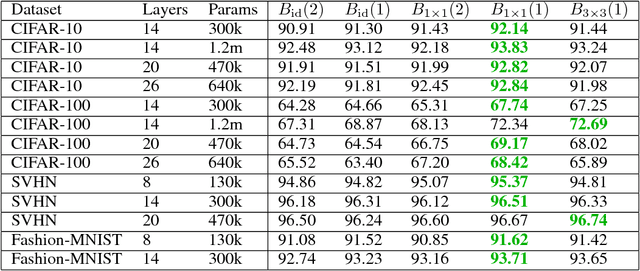Tandem Blocks in Deep Convolutional Neural Networks
Paper and Code
Jun 01, 2018



Due to the success of residual networks (resnets) and related architectures, shortcut connections have quickly become standard tools for building convolutional neural networks. The explanations in the literature for the apparent effectiveness of shortcuts are varied and often contradictory. We hypothesize that shortcuts work primarily because they act as linear counterparts to nonlinear layers. We test this hypothesis by using several variations on the standard residual block, with different types of linear connections, to build small image classification networks. Our experiments show that other kinds of linear connections can be even more effective than the identity shortcuts. Our results also suggest that the best type of linear connection for a given application may depend on both network width and depth.
 Add to Chrome
Add to Chrome Add to Firefox
Add to Firefox Add to Edge
Add to Edge